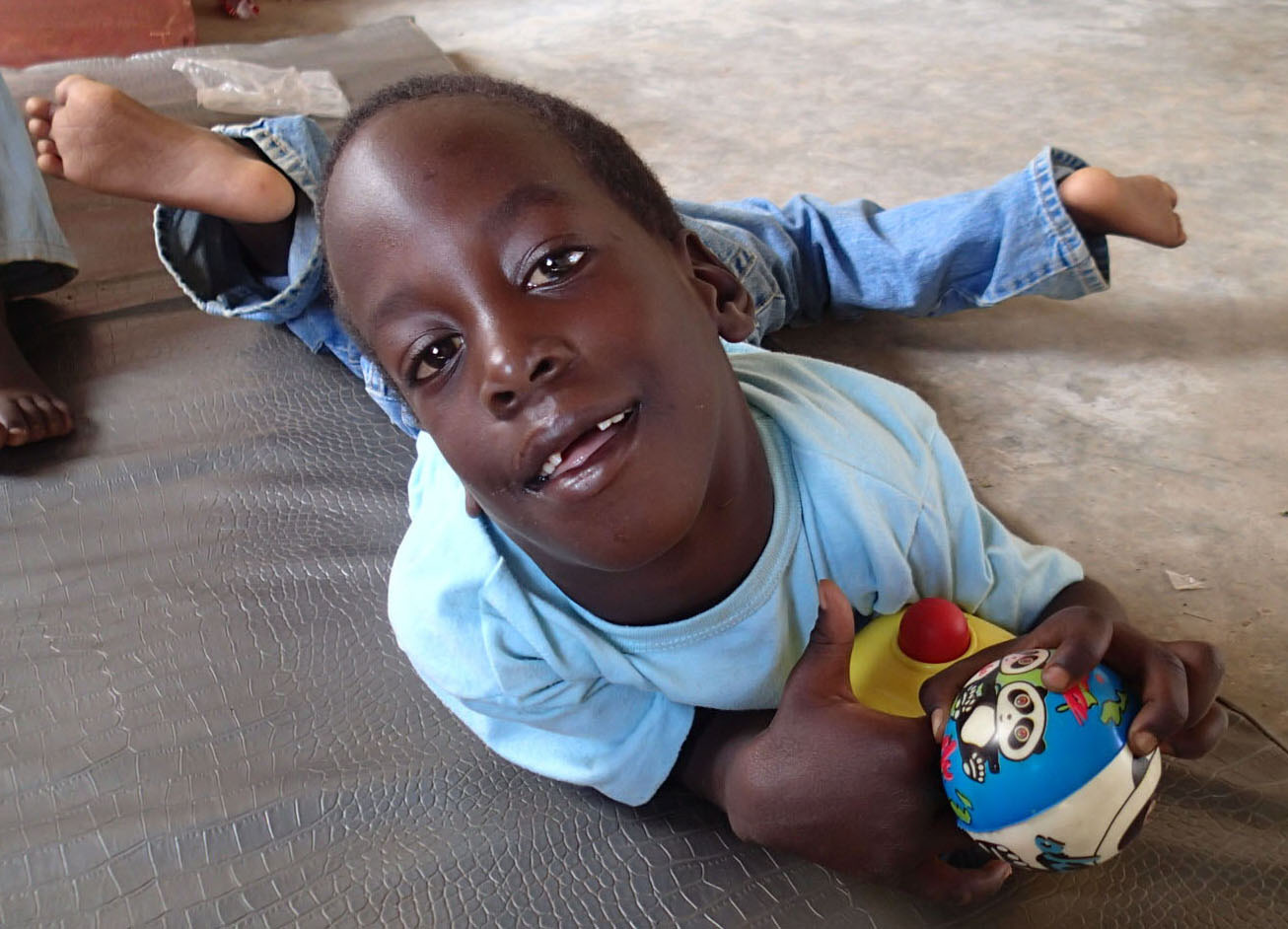Cerebral Palsy (CP) is a group of permanent movement disorders that appear in early childhood.
It is caused by abnormal development or damage to the parts of the brain that control movement, balance, and posture. CP affects muscle tone, movement, and motor skills, but the exact symptoms and severity can vary greatly from person to person.
In this article, we will delve into the signs and symptoms of cerebral palsy, discuss preventive measures, and explore how Teamwork Homecare can assist patients with CP in Uganda and Africa.

Signs and Symptoms
1. Delayed Milestones:
Children with CP may have delays in reaching developmental milestones such as rolling over, sitting up, crawling, or walking.
2. Abnormal Muscle Tone:
CP can cause muscles to be either too stiff (spasticity) or too floppy (hypotonia). This can affect the child’s ability to control movements and maintain balance.
3. Involuntary Movements:
Some individuals with CP experience uncontrollable movements such as jerking or writhing motions (dyskinesia) or slow, writhing movements (athetosis).
4. Poor Coordination and Balance:
Children with CP may have difficulty with coordination and balance, making tasks like walking, running, or grasping objects challenging.
5. Speech and Communication Difficulties:
CP can affect the muscles used for speech and communication, leading to difficulties with speaking clearly or forming words.
6. Seizures:
Seizures are more common in individuals with CP compared to the general population.
7. Intellectual Disability:
While CP primarily affects movement, it can also be associated with intellectual disabilities, though not all individuals with CP have cognitive impairments.

Prevention of Cerebral Palsy:
While not all cases of CP can be prevented, there are steps that can be taken to reduce the risk:
1. Prenatal Care:
Seeking early and regular prenatal care can help identify and address any risk factors or complications during pregnancy.
2. Avoiding Risk Factors:
Avoiding certain risk factors such as premature birth, low birth weight, infections during pregnancy, and exposure to toxins or drugs can help reduce the likelihood of CP.
3. Treatment of Jaundice:
Prompt treatment of jaundice in newborns can help prevent complications that may lead to CP.
4. Injury Prevention:
Taking precautions to prevent head injuries, such as using appropriate safety gear during sports activities or securing car seats properly, can reduce the risk of CP caused by brain injuries.

Treatment and Management Options:
While there is no cure for CP, various treatment and management options can help individuals with CP lead fulfilling lives:
1. Physical Therapy:
Physical therapy can help improve muscle strength, flexibility, and coordination, making movement and daily activities easier.
2. Occupational Therapy:
Occupational therapy focuses on developing skills needed for daily activities such as dressing, eating, and writing.
3. Speech Therapy:
Speech therapy can help improve communication skills and address difficulties with speech and language.
4. Assistive Devices:
Braces, splints, wheelchairs, and other assistive devices can help improve mobility and independence.
5. Medications:
Medications such as muscle relaxants or anti-seizure medications may be prescribed to manage symptoms associated with CP.
How Teamwork Homecare has Helped:
Teamwork Homecare has Cerebral Palsy Specialists that povide care to individuals with disabilities, including those with cerebral palsy, with professionalism and at your comfort. Contact us today
Airtel: 0200-909453
MTN: 039-256331
We are located at Naalya Estates, Golden Apartments
Or email us
Or visit our website
Here’s how we can help:
1. Home Care Services:
Teamwork Homecare offers homecare services tailored to the specific needs of each individual with CP. This may include assistance with daily activities, personal care, and medication management.
2. Skilled Nursing Care:
Their team of skilled nurses can provide medical care and monitoring for individuals with CP, ensuring their health and well-being are prioritized.
3. Therapy Services:
Teamwork Homecare provides access to physical, occupational, and speech therapy services to help individuals with CP improve their mobility, independence, and communication skills.
4. Support for Families:
They offer support and resources for families of individuals with CP, helping them navigate the challenges and uncertainties that come with caring for a loved one with special needs.
5. Community Outreach:
Teamwork Homecare is actively involved in community outreach programs aimed at raising awareness about cerebral palsy, promoting early intervention, and providing support to families affected by CP.
That’s been a Wrap, I hope you enjoyed this, if you did kindly give it a like 👍 and share with all those that may need it. 🙏
Lets catch up in the next one✌
Teamwork Homecare Team.




